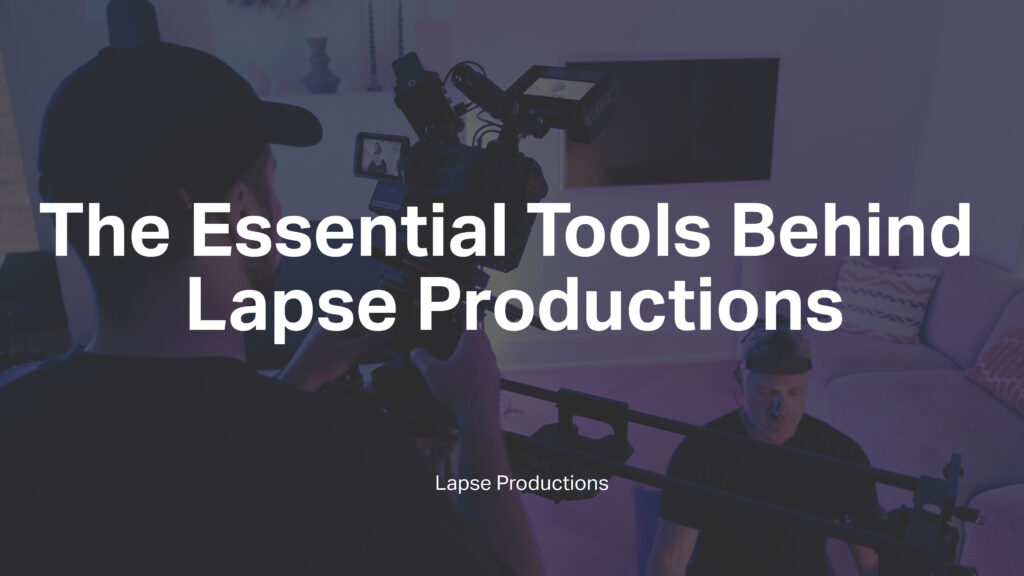At Lapse Productions, we understand that creating a video production contract is a crucial step towards a successful project. It’s not just about legalities; it’s about setting the stage for a smooth and effective collaboration. In this guide, we’ll share essential elements that we incorporate in our contracts to ensure clarity and protection for all parties involved.
- Watch our Video Podcast Discussion on 7 Tips for Video Contracts
- 1. Detailed Service Description
- 2. Transparent Payment Terms
- 3. Robust Confidentiality Clause
- 4. Ownership and Deliverables
- 5. Cancellation and Rescheduling
- 6. Indemnity and Liability
- 7. Non-Solicitation Clarity
- 8. Bonus: Expiration Clause
- Conclusion
- Let's Create Your Video Today
- Frequently Asked Questions
Watch our Video Podcast Discussion on 7 Tips for Video Contracts
In this episode, the hosts discuss seven tips to include in video production contracts. They emphasize the importance of a detailed service description, transparent payment terms, a robust confidentiality clause, ownership and deliverables, and cancellation and rescheduling policies. They also mention the significance of including a deposit for new clients and having a clear timeline for payment. The hosts provide insights and examples based on their own experiences in the industry. In this part of the conversation, Kyrill and Dario discuss various clauses to include in contracts to protect both the production company and the client. They cover topics such as adapting to different work processes, setting clear deadlines and feedback timelines, dealing with project delays and outliers, compensation for unavailability, indemnity and liability, non-solicitation clarity, and expiration and abandonment. These clauses help ensure smooth project execution, protect against potential issues, and maintain professional relationships. In this episode, Dario and Kyrill discuss the importance of contracts in business and provide insights into key elements, common clauses, negotiation and drafting, enforcement, disputes and resolutions, management and review, best practices, and the use of templates and tools. They emphasize the need for well-drafted contracts to protect the interests of all parties involved and provide practical tips for creating effective contracts. The episode concludes with a call for audience feedback and suggestions for future topics.
1. Detailed Service Description
In this section, clearly define the scope of your services. Whether it’s video shooting, editing, animation, or a combination of these, being explicit about what you will provide helps set accurate expectations. It’s not just about listing services; it’s about detailing the process, deliverables, and any unique features you offer. This precision helps avoid misunderstandings and ensures your client knows exactly what they are paying for, leading to smoother project execution and client satisfaction.
2. Transparent Payment Terms
The payment terms section is crucial for financial clarity. It should detail the payment schedule, including any deposits, installment payments, and final balances. Be clear about amounts, due dates, and accepted payment methods. This transparency helps in avoiding any financial misunderstandings or disputes. It’s also beneficial to include details on late payment consequences to ensure timely compensation. By outlining these terms, both parties have a clear understanding of the financial commitments involved in the project.
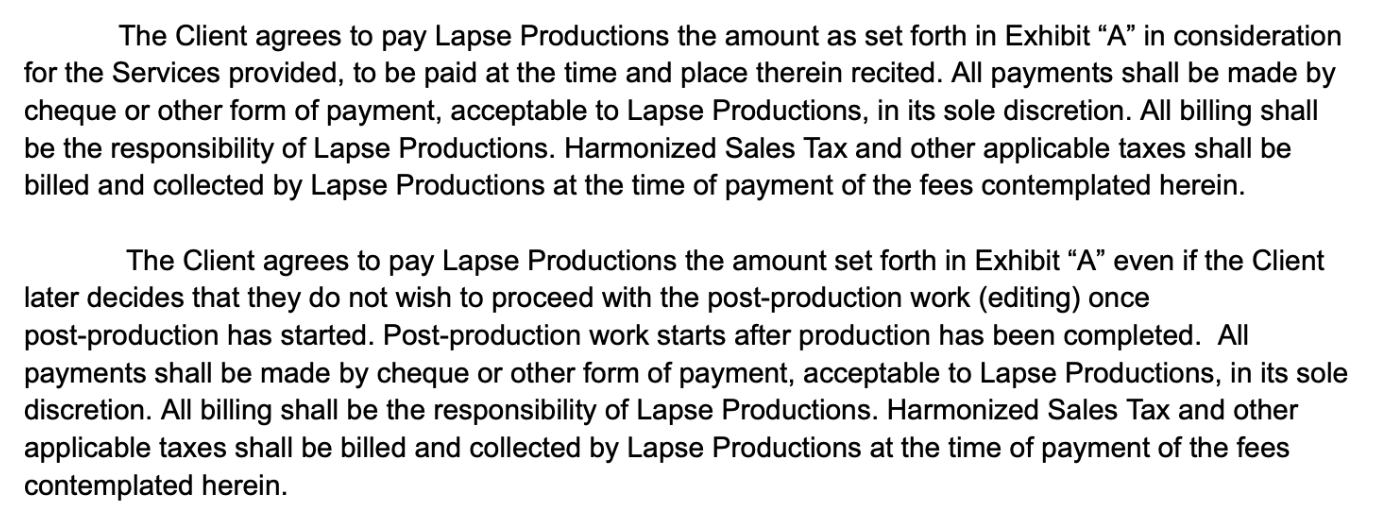
3. Robust Confidentiality Clause
A confidentiality clause is essential for safeguarding sensitive information. This section should define what constitutes confidential data, such as project details, client information, or trade secrets. It’s important to clarify the expectations for both parties in handling this information. By including this clause, you ensure that proprietary information remains protected, maintaining trust and professional integrity throughout the project. This is particularly crucial in the creative industry, where ideas and content are valuable assets.
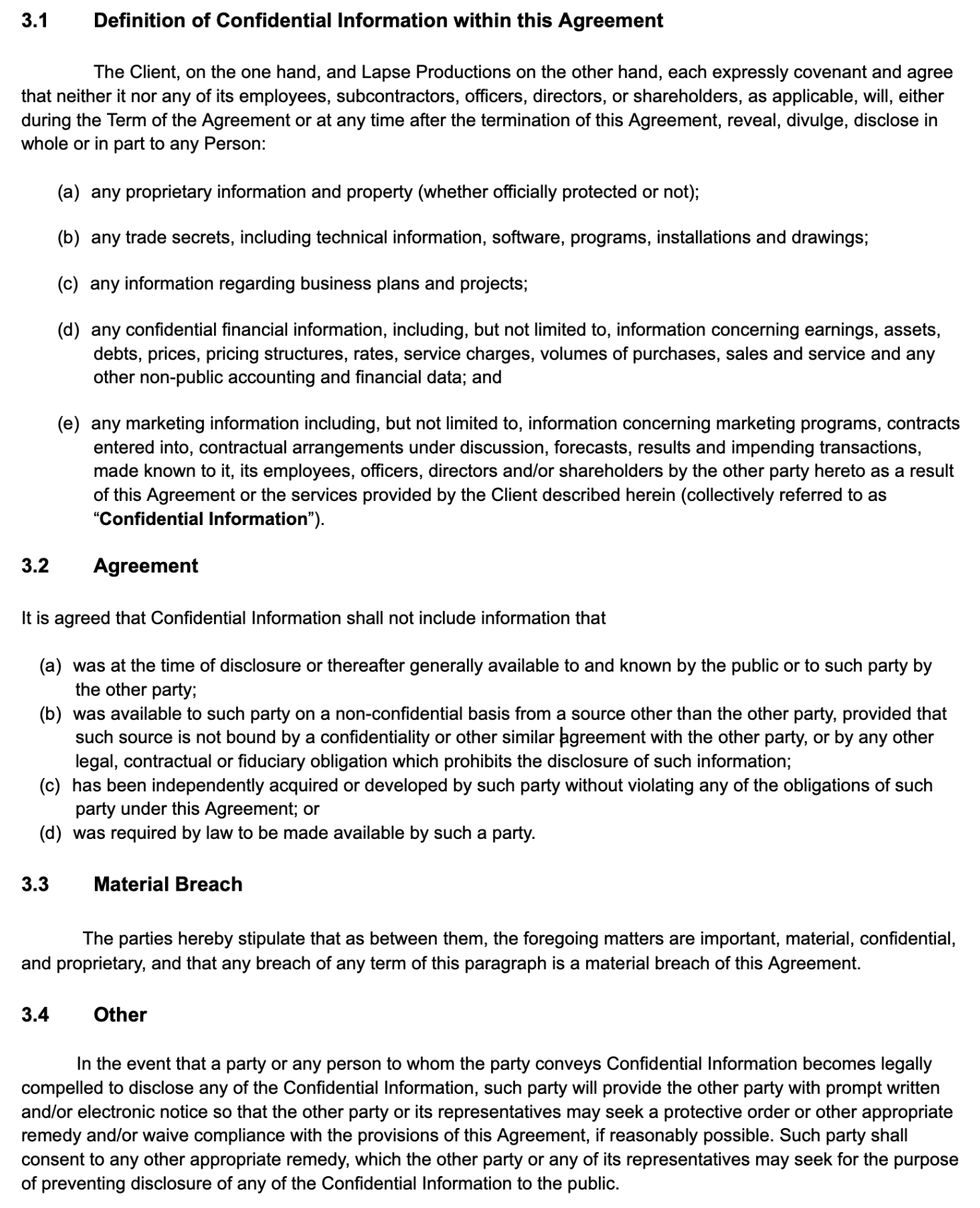
4. Ownership and Deliverables
This section should clearly define who owns the final product and the specific deliverables, including formats and versions. Clarify the rights to the final outputs, usage rights, and whether raw files or project files are included. This is crucial to avoid any future disputes over ownership and usage. It’s also important to outline the delivery timeline for these deliverables. By setting these terms, you ensure both parties agree on what will be delivered and who holds the rights to the produced content.
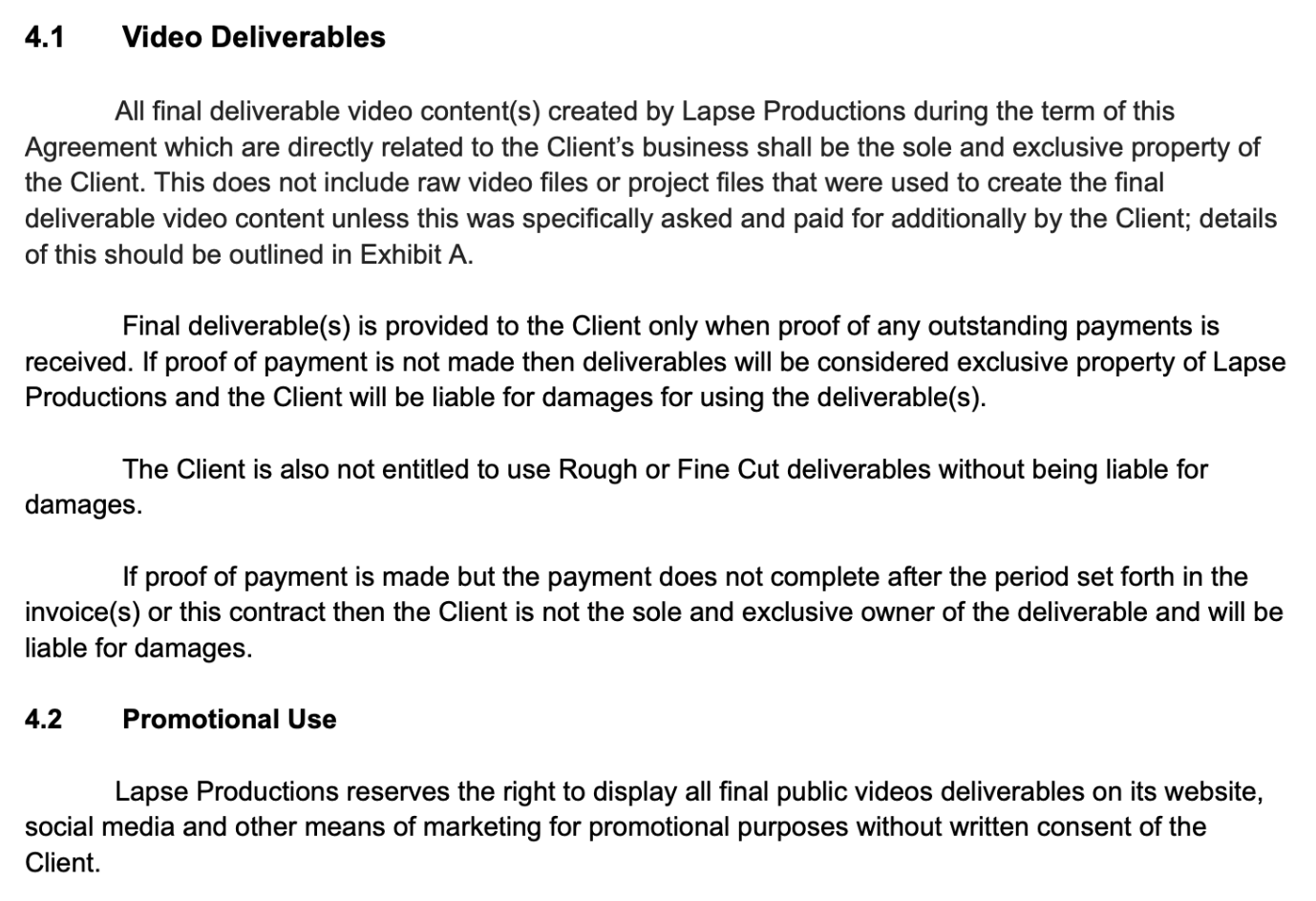
5. Cancellation and Rescheduling
Outline clear policies for cancellations and rescheduling. This includes the notice period required for either party to alter or cancel the engagement, and any fees associated with these changes. It’s essential to address how unforeseen circumstances are managed. This clause helps in minimizing the impact of cancellations or delays on both parties, ensuring a fair and predetermined approach to handling schedule changes. By having these policies in place, it helps maintain a professional relationship even when plans need to be adjusted.
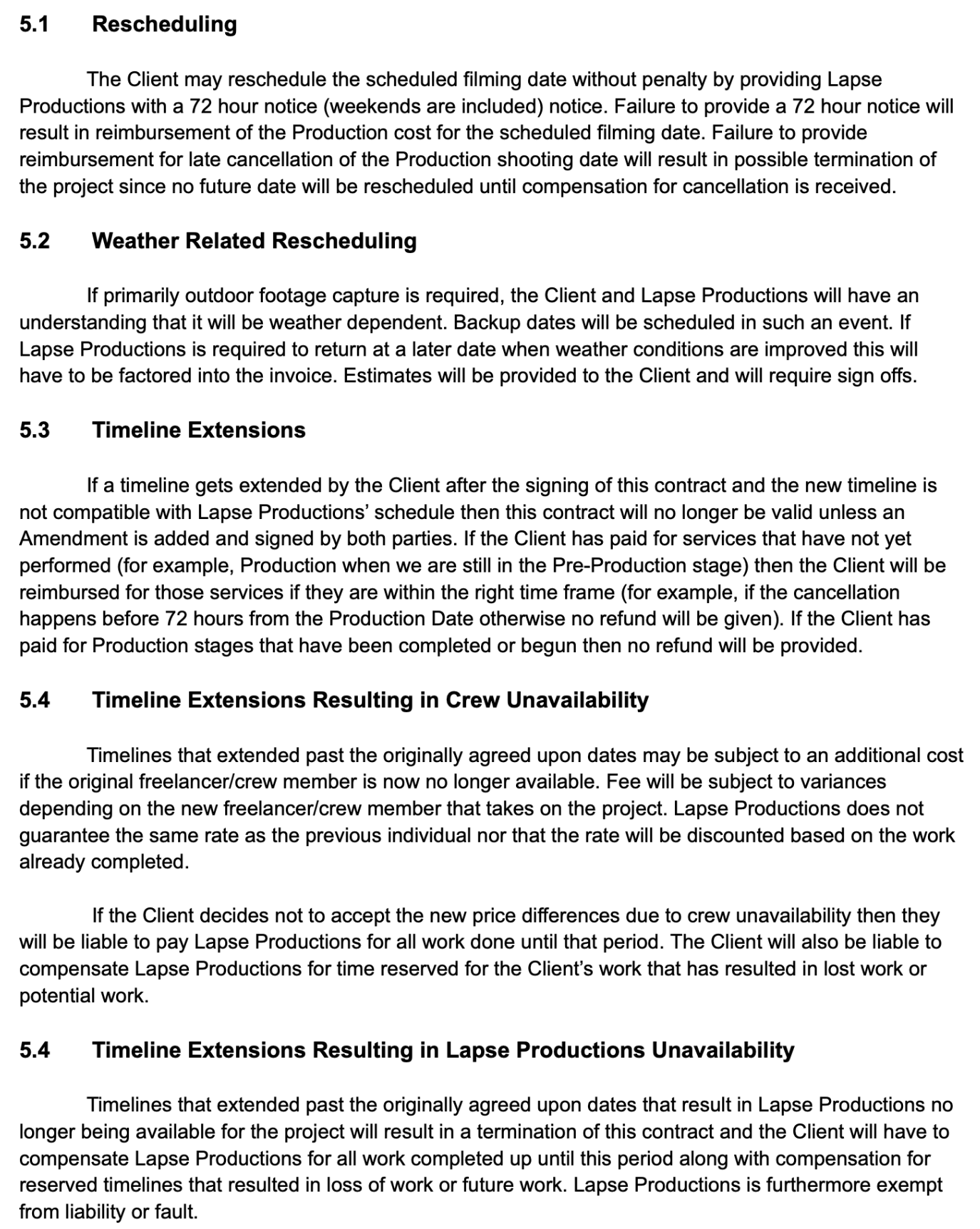
6. Indemnity and Liability
The indemnity and liability clauses are vital for legal protection. They outline the responsibilities and protect both parties from legal actions arising from breaches of contract, negligence, or other liabilities. These clauses ensure that each party understands their accountability in case of damages or legal issues. By including indemnity and liability terms, both the video producer and the client are safeguarded against unforeseen legal and financial risks associated with the project. This creates a safer working environment and fosters trust between the parties.

7. Non-Solicitation Clarity
The non-solicitation clause is a key part of a video production contract. It prevents clients from hiring your employees or subcontractors during and after the project. This clause is crucial for protecting your business’s interests and maintaining a stable, reliable team. By including it, you ensure the longevity and integrity of your workforce, allowing you to continue providing top-quality services without the risk of losing your valuable talent to clients.
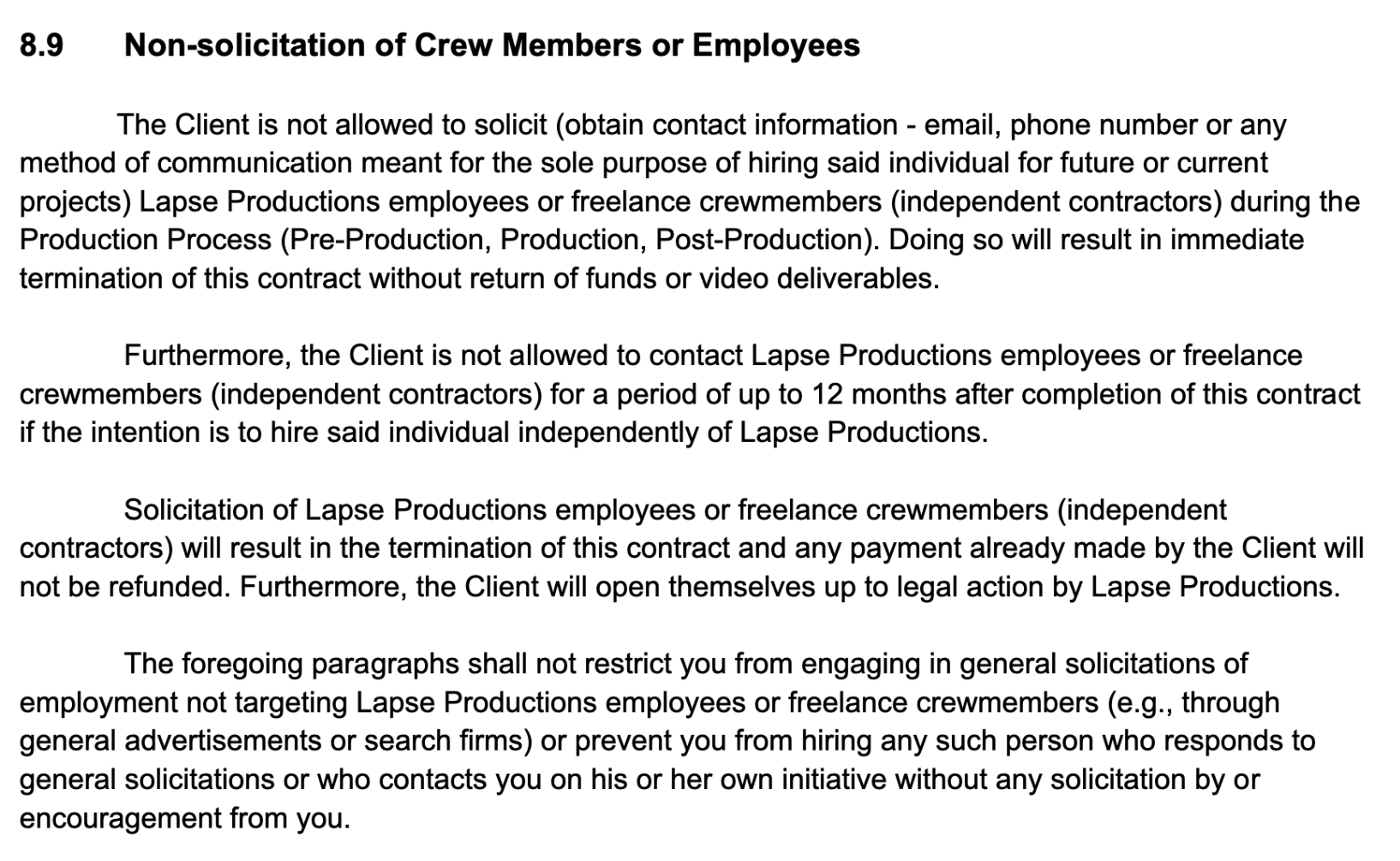
8. Bonus: Expiration Clause
An Expiration Clause is a safeguard against projects that stall or are abandoned.
Here’s how it works: If a client halts communication or project progress for six months, we consider the project abandoned. If no pre-production work has started, we keep the initial deposit and may terminate the contract. This policy also applies if the project hasn’t begun within six months from contract signing, but we won’t start the abandonment clock until a reasonable time has passed.
And if pre-production has begun but then stalls for the same period, the same rules apply. You should always put in a reasonable effort to move the project forward before considering it abandoned. This clause ensures that our team’s efforts are invested in active, progressing projects and not left hanging by indefinite delays.
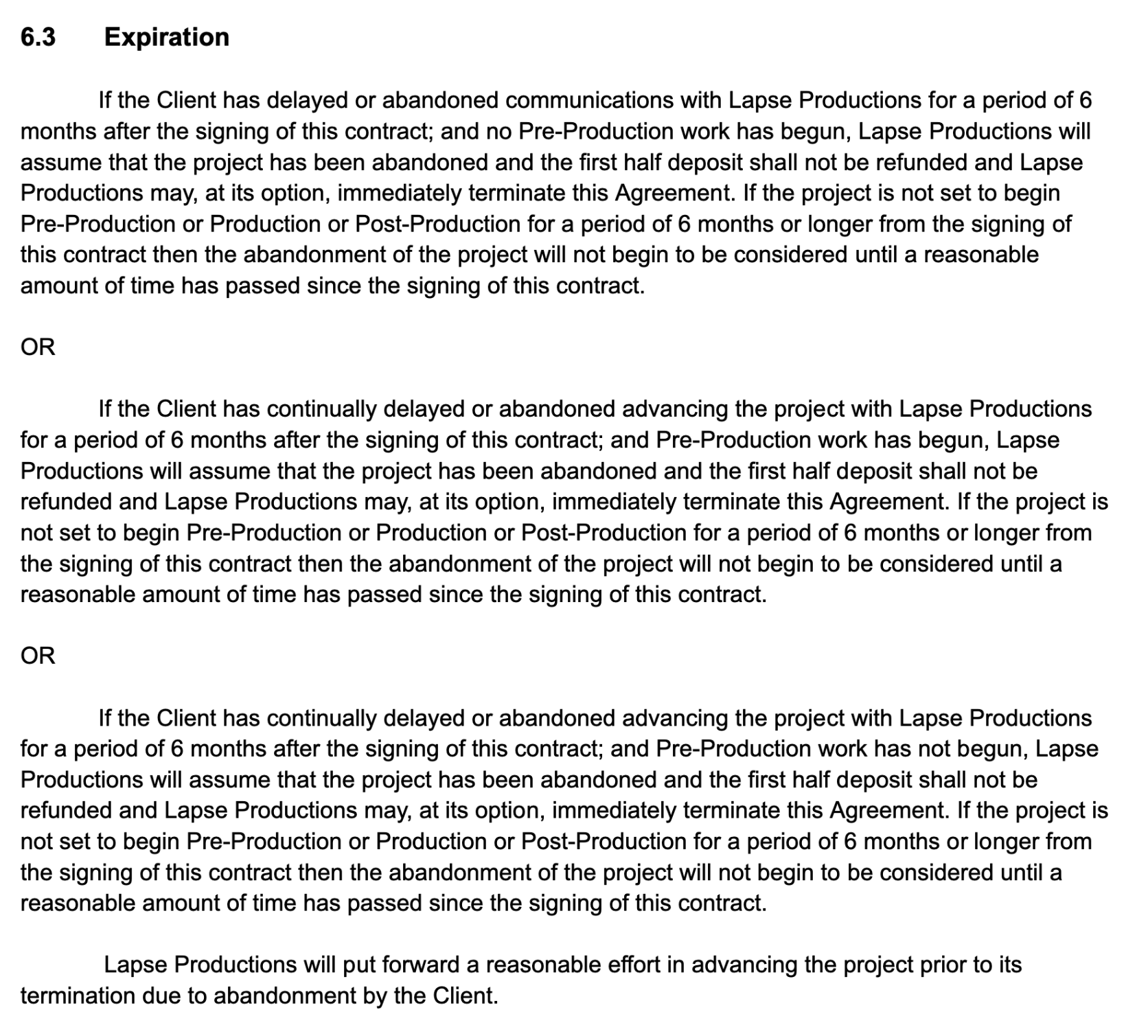
Conclusion
With these key contract elements, you’re well on your way to successful video projects. Looking for expert advice or top-notch video production services? Reach out to us at Lapse Productions. Let’s make your vision a reality.
Let’s Create Your Video Today
If you’re looking for top-notch quality, industry expertise, dependability, and competitive pricing, don’t wait any longer. Contact us now for a quote and let’s get started on your project.


